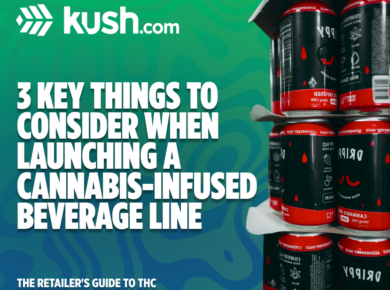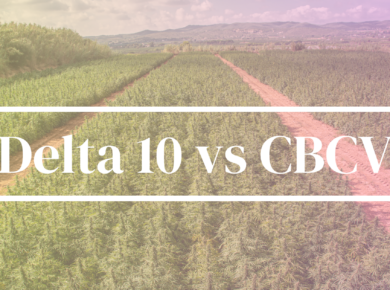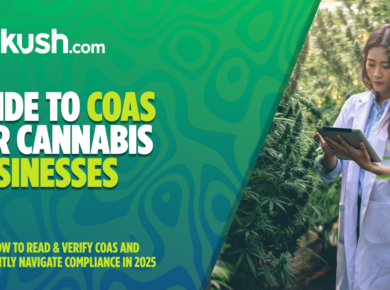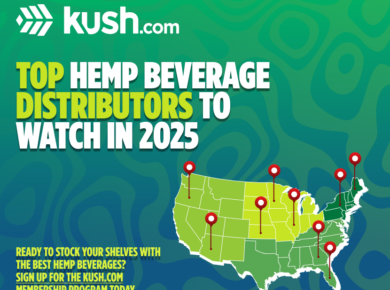One of the most dangerous and widespread issues in hemp testing is how inaccurate or varied the results can be. You don’t have to dig deep to find an onslaught of evidence that shows precision is the exception to the rule. Jama’s study, for example, showed that only 17% of lab results accurately profiled cannabinoid concentration in edibles. That means a sizable portion of samples contained more THC than the results indicated. And as a result of mistakes like these, hemp companies will accidentally mislabel their products.
This can have serious consequences for customers who mistakenly ingest these mislabeled products and experience unwanted psychoactive effects.
Situations like these are not uncommon, which is why hemp companies must carefully choose a third-party laboratory. The laboratory should not only meet certification requirements, but also exceed them while showing expertise in testing each of the major hemp product types. But it’s not always easy to discern between the leaders and the newcomers. Laboratories may have fancy websites and marketing that can mask serious inefficiencies behind the scenes. That’s why I want to cover exactly what qualifications and parameters hemp companies must consider before choosing a lab they can trust.
Qualifications
If you’ve ever reviewed resumes, you probably checked to see that the candidates have the minimum required education or certifications. But when you notice that they went the extra mile to attain higher learning, you know they’re likely passionate experts in their field.
Similarly, when it comes to reviewing third- party laboratories, you want to check that they have the minimum certifications required by the USDA. That includes an ISO 17025 accreditation and DEA registration. You’ll also want to ask if they meet AOAC International’s standard method performance requirements (SMPRs). But if you want to find a lab that goes beyond the barrier toentry, ask about its other qualifications. For instance, if a lab has a CLIA Certificate, this shows it passed the exhaustive requirements to be a clinical-grade facility.
Join the largest network of hemp professionals in the world, Kush.com >>
Accuracy
Now that you know if the labs are qualified on paper, next you want to know how good they are at their jobs. One of the main reasons why labs produce results that vary wildly from one another is there are no national standard testing protocols. So, despite their certifications, labs can still produce inaccurate results. That’s why you want to be sure your lab is open about its testing methodology and can prove the quality of its results. One way to do this is to ask about its accolades and the source of those awards.
Emerald Scientific, for example, developed an inter-laboratory comparison proficiency test. The purpose of the test is to bring consistency and standardization to hemp testing based on the practices established in the environmental, food, pharmaceutical, water and petrochemical industries. This is a voluntary test, which means labs that opt to take it are generally more trustworthy, equipped and consistent.
In 2018, ACS Laboratory was among many companies nationwide that submitted hemp samples to the Emerald Test. In the end, we received more awards for accuracy than any other third-party laboratory in the southeastern United States. That included tests for cannabinoid potency across products ranging from hemp flower to extracts and edibles. It also included safety tests for bacteria, pesticides and heavy metals. In 2019, we participated again, earning 21 emerald badges, more than any cannabis testing laboratory in the eastern USA and ranking in the top 5% in the U.S. Most notably, we received an award for measuring cannabinoid potency in beverages. This is one of the most difficult tests to perform due to the tiny particle size and low potency.

Testing Capabilities
Unfortunately, many laboratories are getting it wrong, especially when it comes to new technology like nano emulsions in hemp beverages. Many laboratories do not have the equipment, experience or standard operating procedures to handle these microscopic particle sizes. That’s why it’s so important to find a lab that understands the science of hemp and can change rapidly tomeet the needs of an evolving industry, especially as it relates to your product type.
One example of this change is the rapid thrust and sheer volume of education available to the public. Consumers are quickly becoming hemp subject-matter experts, and they demand to know more about what they buy. Other than THC and CBD, customers also want to know about cannabinoids like CBN and CBG, as well as terpenes because they want a product tailored to their needs. They may have also heard about the latest cannabinoid discoveries like THCp and CBDp. That’s why you need to ask a laboratory how many cannabinoids and terpenes it tests for and what it knows about the latest discoveries that your customers care about.
In addition to effects, customers care a great deal about the safety of the product they plan to smoke, ingest or apply to their skin. They’ve probably heard the recent news about how vitamin E can cause respiratory disease and death in vapes, or how the deadlyweedkiller Roundup (glyphosate) is now prevalent in some hemp flower strains. But these are all timely discoveries, and many laboratories do not have the capabilities to quickly develop accurate tests for such toxins. That’s why you need to find a laboratory that knows what’s going on and can adapt to meet the ever-changing needs of the market.
Product Type
Hemp products come in various forms, from vapes, tinctures and flower, to isolates, salves, nano beverages and teas. That’s why it’s so important to choose a laboratory with expertise in testing the product type you’re selling. For example, some laboratories specialize in testing flower, and they may have walls of accolades to prove it. But if you’re producing a hemp topical cream, you need to ask about awards that relate directly to YOUR product. Then you may want to ask the lab to provide customer testimonials or reviews. Legitimate reviews help prove a lab’s credibility.
Create Your Kush.com Account Today >>
Compliance
Legal compliance may seem like a minimum requirement, but not every laboratory can keep up with the developing legal landscape across state and federal governments. For instance, while the U.S. Department of Agriculture (USDA) is presiding over THC testing requirements for hemp flower, the Food and Drug Administration (FDA) is investigating CBD rules for food and supplements. Simultaneously, individual states are creating their own hemp programs that may or may not align with federal standards.
Nearly every state has different rules, and their leaders are enacting new programs on a regular basis. My point in saying all this is not to tie your brain in knots, but to illustrate the point that laboratories must keep up. They need to have the equipment and protocols the USDA requires for compliant THC testing. They must also know yourstate’s precise allowable limits for hemp contaminants that are safe to ingest. Then they must be prepared to show you proof thatyour product falls within the safe and acceptable limits for all analytes.
Transparency
This proof should come in the form of a Certificate of Analysis (COA), which is a document that shows every analyte tested along withthe results as they compare to your state’s safe allowable limits. Compliant COAs should include a full panel of results for at least 67 pesticides and 23 residual solvents, along with heavy metals, mold, bacteria, filth and foreign materials. Labs that are not willing orable to publish results across all of these categories should not be your source for testing.
Distance
Finally, you should never take distance into account when choosing a third-party laboratory for your product. While you canlegally ship hemp across the country, you want the best qualified laboratory whose tests are compliant with national standards.Florida has the strictest testing requirements in the USA; it is the perfect testing location for any client seeking to distribute its productsnationwide. ACS Laboratory is the largest cannabis and hemp testing laboratory in the Eastern USA.
Top 10 Requirements for a Third-Party Hemp Laboratory
There you have it, my thoughts on the key parameters to consider when choosing a third-party laboratory for your hemp products. For quick and easy reference, here’s my top 10 list:
- Minimum required accreditations (ISO and DEA)
- Certifications beyond the minimum (CLIA)
- Proven accuracy (Emerald Test or comparable awards)
- Up-to-date testing capabilities (vitamin E, glyphosate, new cannabinoids)
- Product-specific expertise (to match your needs)
- Compliance (with state and federal rules)
- Transparency (published COAs)
- Full-panel tests (that exceed requirements)
- Distance (published COAs)
- National Testing Standards that meet national distribution requirements
Get Hemp Seeds as Low at $0.30/each with the Kush.com Group Buy >>
About the Author

Roger Brown, CEO/President
ACS Laboratory
Mr. Brown co-founded ACS in 2008. ACS Laboratory, an ISO 17025 accredited, DEA Licensed, CLIA accredited facility is the largest Cannabis and Hemp testing laboratory in the Eastern USA. The Laboratory developed proprietary testing methods for cannabis, hemp and all derivatives. Mr. Brown is a serial entrepreneur. Prior to founding ACS, Mr. Brown was President of CMB Additives, an animal feed additive manufacturer. In 1996, he founded MD To You, a premiere mobile physicians group targeting the elderly population throughout Florida. Prior to that he owned and was involved in several medical businesses and taught surgical procedures domestically and internationally using specialty instrumentation such as laparoscopy and surgical staples. Mr. Brown received a bachelor’s degree from the University of Florida. He is a board member of the Hemp Industries Association of Florida.

ACS Laboratory has developed high complexity laboratory proprietary tests for potency, pesticides, terpenes, microbials, pathogens, mycotoxins, heavy metals, plant regulators, flavonoids, micronutrients and most recently a vitamin e acetate Test.. The Company’s 17,500 square foot state of the art laboratory is located in Sun City Center, Florida. ACS was just awarded 21 Emerald Badges in 2019, more than any laboratory in the Eastern USA. Please visit www.ascslabcannabis.com for more information.






